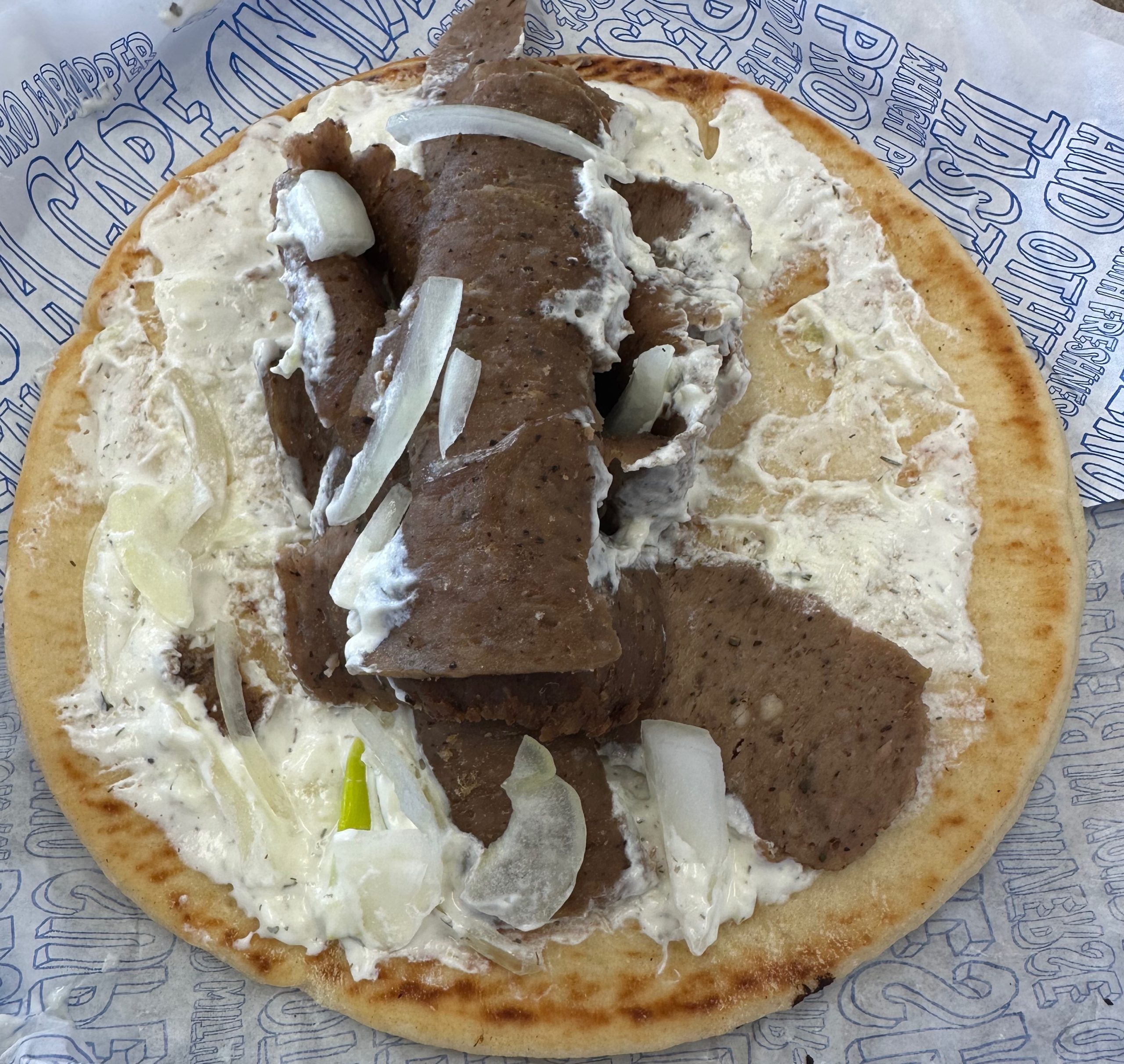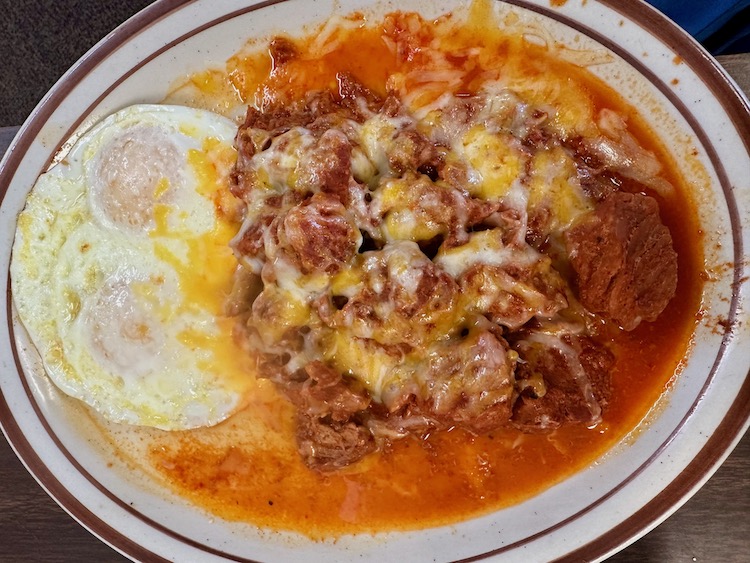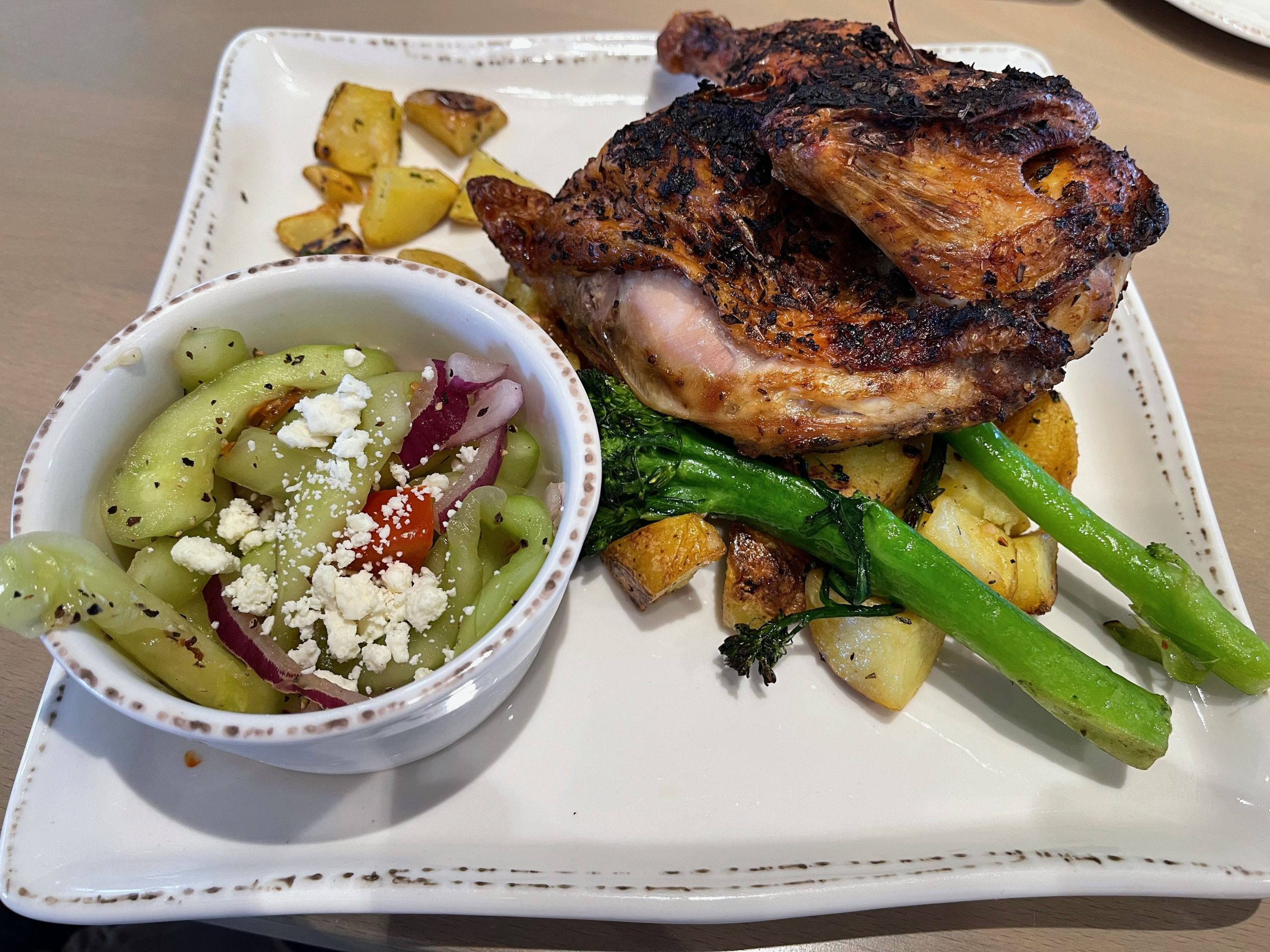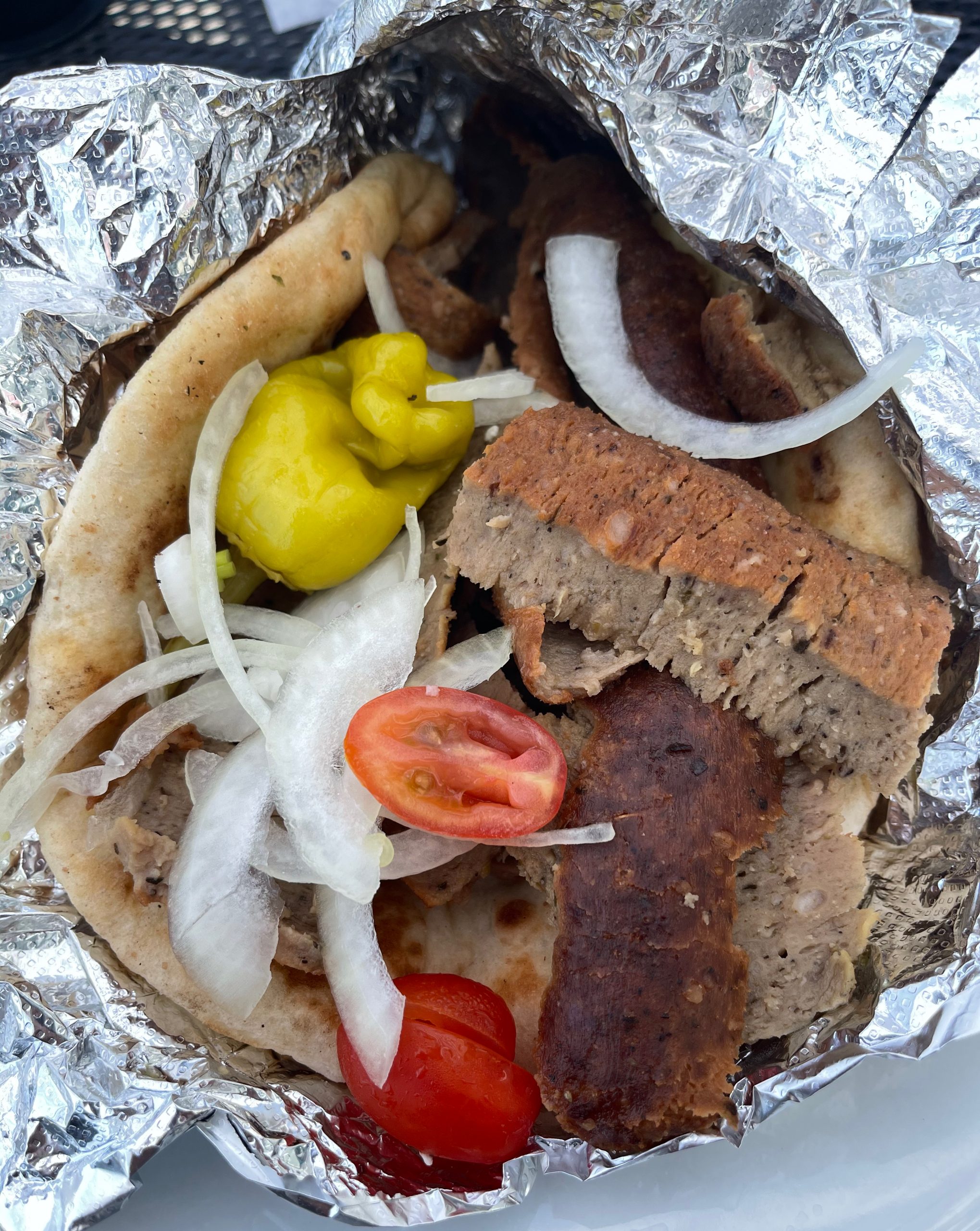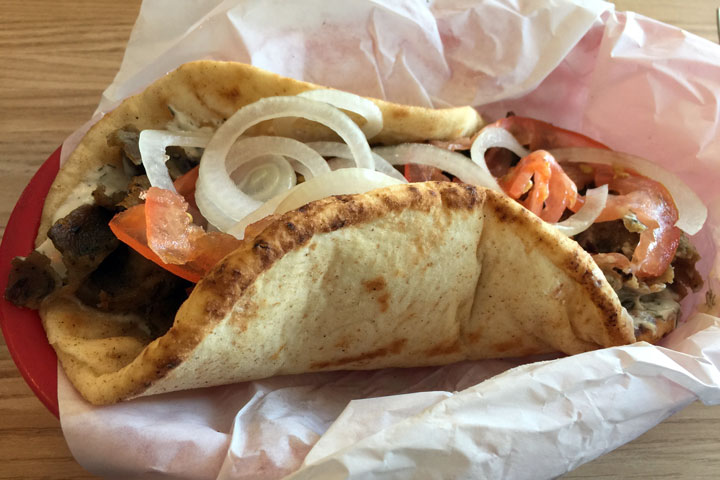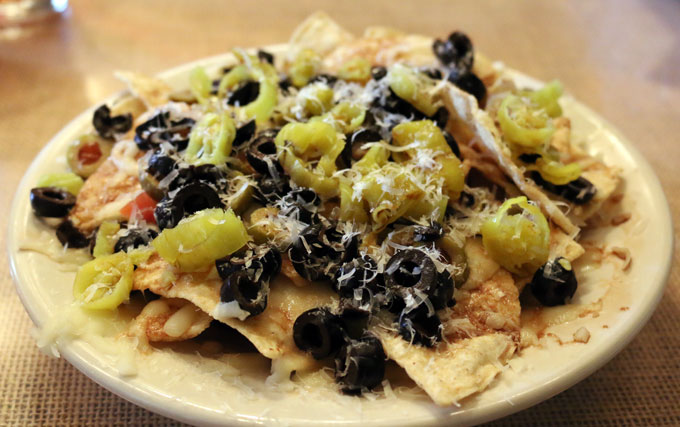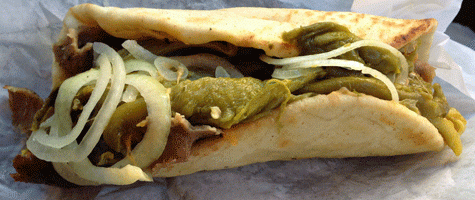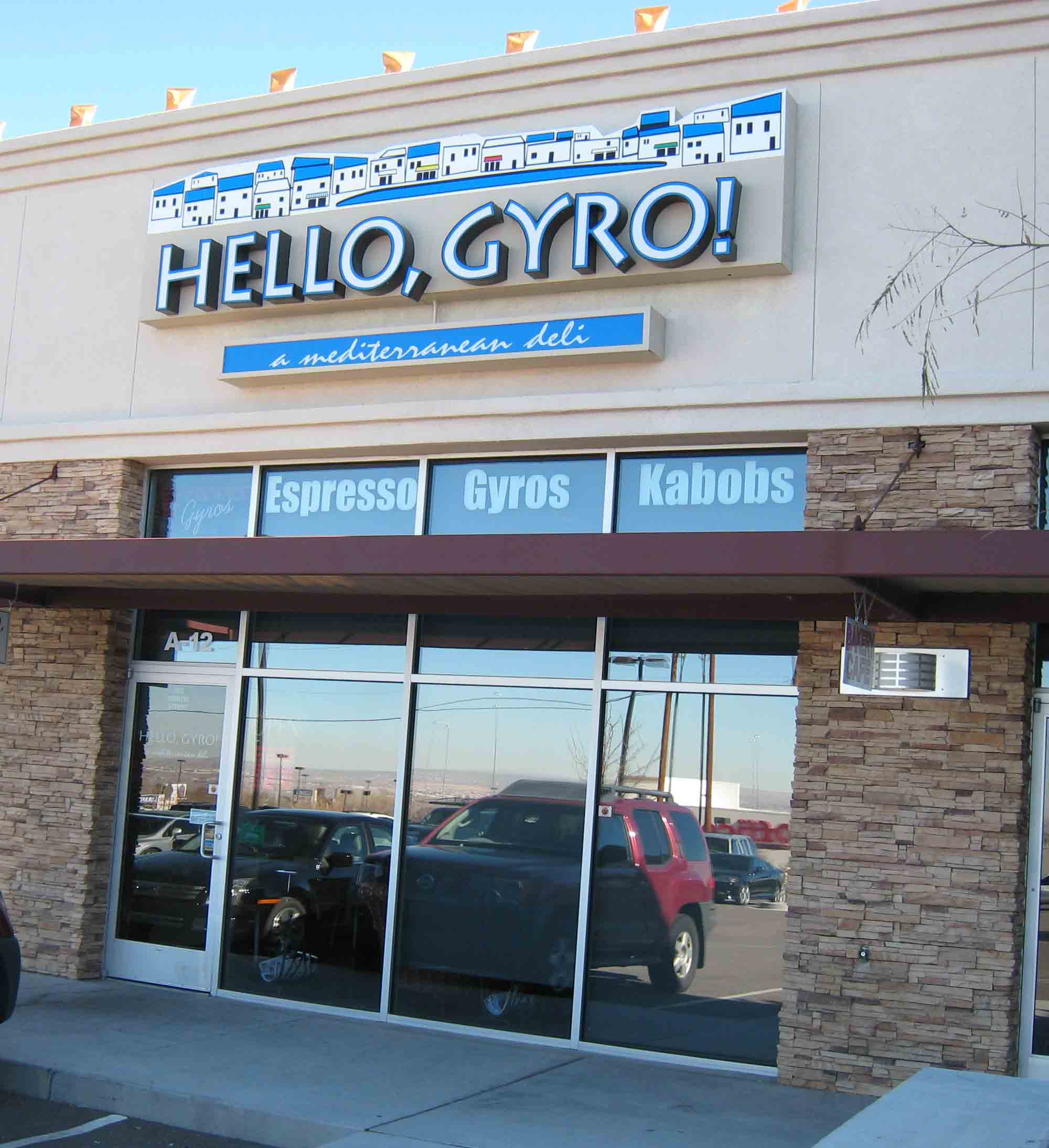Gyros Shack – Albuquerque, New Mexico
When my dear friend Adelchi Parisella introduced me to Greek food at Gyros Mediterranean back in the early ’80s, I thought to myself “now this is the food of the gods.” As curious as any cat, I naturally researched whether or not the Greek gods of Mount Olympus actually did eat gyros and patates. The only two “foods” I could recall the gods eating were ambrosia and nectar. Research revealed that while ambrosia and nectar were the gods main source of substance, the haughty mythological beings actually consumed other foods, none of which were gyros and patates. Dionysius, the the god of wine and pleasure and Priapus (a minor rustic fertility God, who protected the male reproductive organs) were fond…
